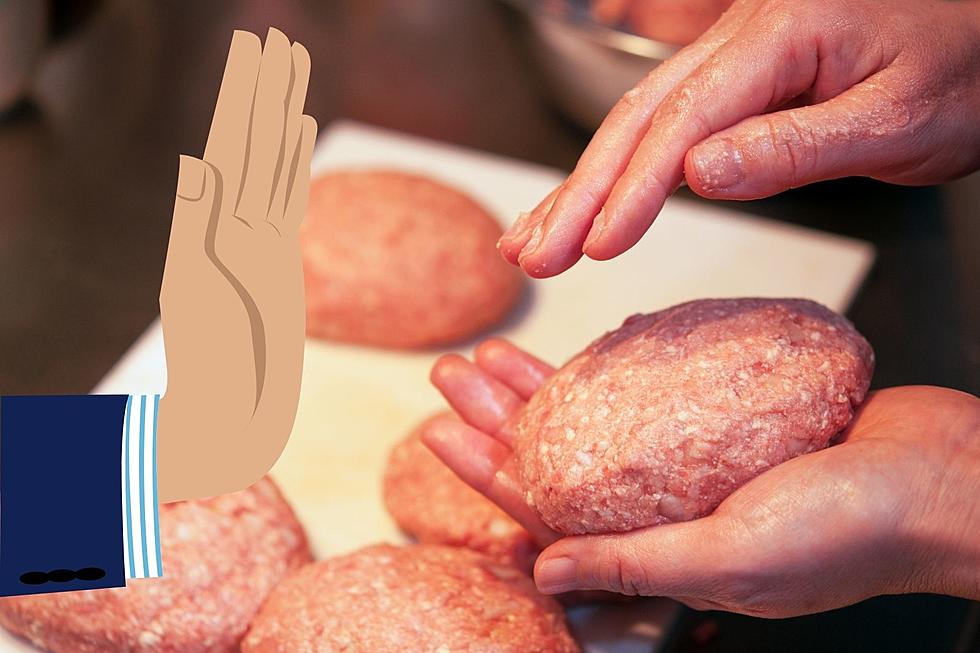
An Open Letter to Restaurant Marketing Departments – Stop Using These Terms to Sell Your Food
Dear Marketing People in Charge of the Wording to Promote Restaurant Items,
I have a bone to pick with you. A "beef," if you will. It's something I picked up on some time ago, and have noticed happening more and more frequently recently. It's the terms you throw into sales pitches to entice me into buying your product.
I get it. You have a job to do, and that job is to do exactly what I just said; describe a product so well that I feel that I must have it. And, for the most part, you're very good at it. My wife calls me a marketing department's dream. You sell something well enough, and chances are I'm going to buy it because you made me believe I couldn't live without it.

I didn't major in marketing, but it is a large part of my job in radio. From what I talk about on the air, to the articles I write for our website, making appearances, and everything in between, I'm basically marketing, or selling, both the station and myself in an effort to get as many people as possible to listen or read what I've written. So, after nearly 25 years in this business, I've picked up on some of the tricks of the trade so to speak which brings me to my point.
Please Stop Using Pointless Terms to Sell Me Your Product
There are times when I think you're trying too hard or attempting to be a little too clever when trying to sell the quality of your product by throwing in phrases that are meaningless and sound ridiculous. For example —
"100% Hand-Pressed Beef Patty"
This is a new one I saw recently being used by one nationwide restaurant to promote a new hamburger on its menu. I guess the idea is to convey that the cooks are taking the extra time and care to form the patty with their hands before slapping it on the griddle instead of some type of machine doing it for them? Does this somehow make it taste better? My guess is, "no." I can tell you with 100% confidence that I have NEVER had the following conversation with a waiter or waitress:
Wait Staff: "Hi, what can I get for you today?"
Me: "Well, I'm leaning toward the BBQ Bacon Cheeseburger. Can you tell me if the patties are formed by hand, or is there some machine in the kitchen cranking them out? I have a strict policy of only eating hamburgers that have been carefully squished between the hands of someone wearing rubber gloves, because I demand only the best quality."
Again, that conversation has never happened, and never will, because I don't care how they make the patties. I just want it to taste good.
And why the need to throw in "100%?" Are some restaurants only hand-pressing 70% of the patty and letting a machine handle the other 30%? It's a very strange way to sell a hamburger.
"Hand-Spun Milkshakes"
Oh, you took 30 seconds to put the cup you threw the ice cream, milk, and chocolate syrup into under a blender and flip a switch? Bless you. I bet this will taste way better than one of those shakes from the other restaurant where they just pull a lever and it falls into the cup.
SPOILER ALERT: It doesn't.
"Hand-Seasoned"
This one didn't come from a restaurant but was used in a commercial by a company that makes pre-cooked deli meats you buy at the grocery store. I don't remember for sure, but I believe they also threw in the word, "meticulously." What does that even mean? Does the company have someone place each and every individual piece of salt, pepper, paprika, and whatever else is in their secret blend of spices on specific parts of a turkey, chicken, or ham before they roast it? If so, what an awful job to have.
I don't care if you load your secret blend of spices in a shotgun shell and shoot it at the bird. If it looks good, there's a good chance I'll buy it. (Side Note: If you decide to take this approach, I'm interested in the position.)
What's with the "Hand" Obsession?
In this day and age of antibacterial wipes and hand sanitizers, I'm not sure people want detailed descriptions of the ways total strangers are getting all handsy with their food. We know they have to touch it, we just don't want to think about it. Yet here you are, not only throwing it in our face but attempting to make it a selling point. Stop.
How about this? Instead of telling me how you make it, just stick with what's on it or in it. You've created a new burger that has melted cheese, barbecue sauce, bacon, and an onion ring on it? Say no more, I'm sold. I do not care how the patty was created, where the pig came from, or if the onion was cut by hand or by a robot. Your seasoning blend features oregano, garlic powder, onion powder, and some basil. You can stop there. I'm in regardless of how it was put on the meat.
Let me ask you this if I were to say this article was "hand-typed," would it have been more appealing? Or, what if I said the songs you hear us play on the station are played by pressing buttons that are "hand-pushed?" Does that make them suddenly sound better?
"Ooooh, every note sounds crisper and cleaner now!" - Nobody
I'm not asking you to reinvent the wheel here. All I'm asking is that you leave out the unnecessary drivel when comes to pushing your products. Sell us on the ingredients, and show us the finished product. I promise one of us will buy it. Or, to put it in terms you can relate to, we'll "hand-purchase it" so we can "mouth eat it."
Sincerely,
Ryan O'Bryan
50 Most Popular Chain Restaurants in America
LOOK: Food history from the year you were born
More From WKDQ-FM






